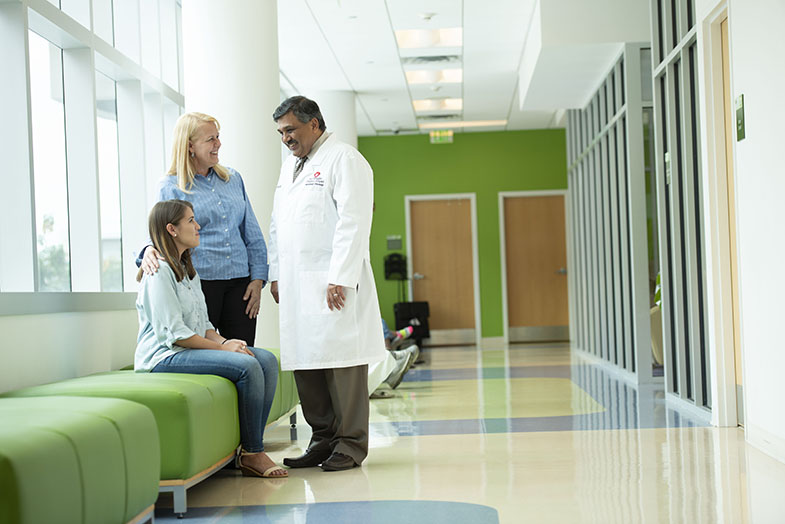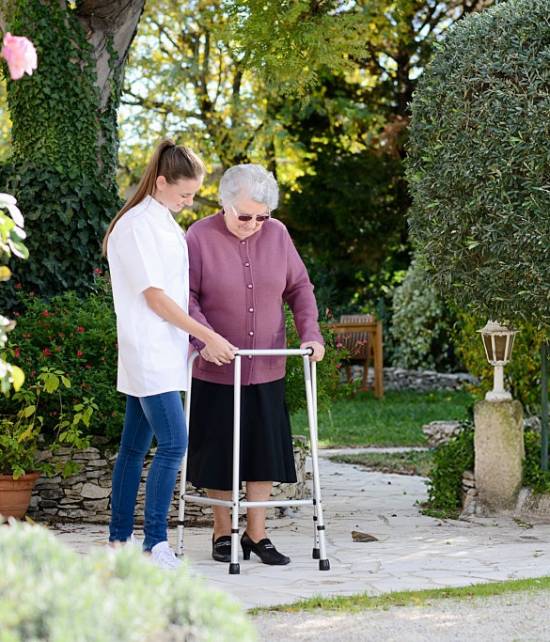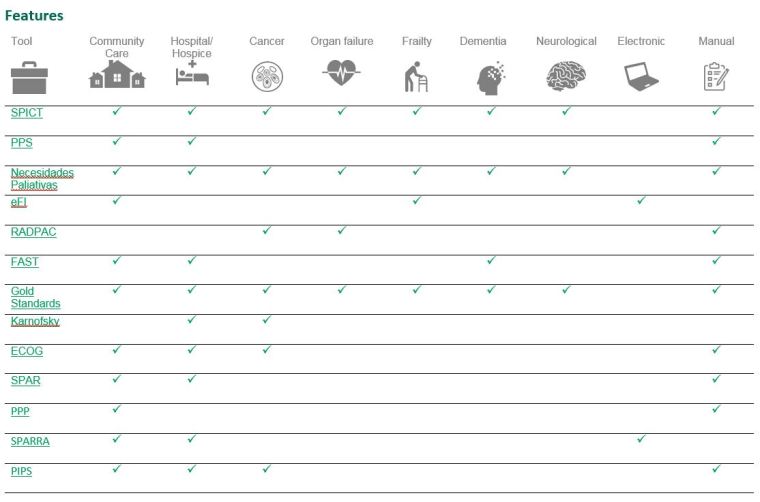
For a down-syndrome test, the doctor will collect the mother’s blood and have it analysed for DNA fragments. These DNA fragments are pieces of DNA between 25-30 base pair length that match a specific sequence. The researchers then counted the number of gene fragments from each chromosome. Women with Down syndrome had higher numbers of DNA fragments from Chromosome 21 than those who didn't have it.
Screening tests help to determine the possibility of Down syndrome.
Screening tests are used to estimate the likelihood that a developing baby will have Down syndrome. A 1 in 1,000 chance of having a Down syndrome baby means that one in every thousand babies born to a woman will have the condition, while 999 will be normal. This is the National Screening Committee's cutoff point for identifying a woman at risk of having a Down syndrome baby.

These screening tests may include a blood test that measures the amount of fluid a baby is in, age, gender, ethnicity, smoking status, and gestational age. These tests are used by computers to calculate the chance that a baby will have Down syndrome. Although some screening tests are precise, they can still give abnormal results. Before undergoing any medical procedure, it is important to be aware of the potential risks.
Down syndrome diagnostic tests determine if a baby has it.
There are several diagnostic tests for Down syndrome. These tests have a higher chance of false-positive than other tests performed later in pregnancy. An amniocentesis is a procedure that takes a sample of amniotic fluid from a pregnant woman to check for Down syndrome. A quadruple screen can be used to detect neural tube defects or brain and spine cord defects. These tests can only be done between 15 and 20 weeks of pregnancy. Your doctor may request a sample from your amniotic fluid if you are at high risk of developing any birth defects.
Ultrasound screening is another method of detecting Down syndrome in a woman's womb. The test involves a woman placing a special gel on the abdomen. A small sample of blood will be taken. The ultrasound transducer then sends sound waves through the amniotic fluid, which deflect off the uterine structures. The speed at sound waves bounceback is affected by their density. The computer will analyze the information bounced back and create an image of the foetus.
Screening tests may be considered invasive.
Screening for Down syndrome is invasive. This is true, regardless of whether they are correlated with the risk of miscarriage. According to a recent study, the current invasive tests do not perform better than theoretical NIPD test. Surprisingly, almost half of the women surveyed said no to these tests and one third of them said they wouldn't have it. However, some women may choose to undergo these tests if they believe that they are not at high risk of miscarriage.

The screening test for DS is making great progress since the 1980s. However, there are still many areas that need improvement. Today, only 5% to 80% of pregnant women undergo invasive testing. These tests come with serious risks and are highly susceptible to false-positives. In 2008, screening for DS had resulted in the miscarriage of 400 babies without the disorder.
FAQ
What role does the private sector play?
Healthcare delivery can be facilitated by the private sector. The private sector provides some equipment for hospitals.
It also pays for some hospital staff. So it makes sense for them to take part in running the system.
But there are limits to what they can offer.
It is impossible for private providers to be competitive with services provided by the government.
And they shouldn't try to run the whole system. This could indicate that the system isn't providing good value for your money.
What does the term "health care" mean?
Health care refers to delivering services related to maintaining good physical and mental health.
What's the difference between the healthcare system and health care services, exactly?
The scope of health systems goes beyond just providing healthcare services. They include everything that occurs in the overall context for people's lives, including education and employment as well as social security and housing.
Healthcare services, on the other hand, focus on delivering medical treatment for specific conditions such as cancer, diabetes, mental illness, etc.
They may also be used to refer to generalist primary-care services that are provided by community-based practitioners under the guidance of an NHS hospital Trust.
What does "health promotion” mean?
Health promotion is about helping people to live longer and remain healthy. It focuses on preventing sickness rather than treating existing conditions.
It includes activities like:
-
Right eating
-
You need to get enough sleep
-
exercising regularly
-
staying active and fit
-
Smoking is not permitted
-
managing stress
-
Keeping up with vaccinations
-
Alcohol abuse prevention
-
having regular checkups and screenings
-
Learning how to manage chronic diseases.
Statistics
- The healthcare sector is one of the largest and most complex in the U.S. economy, accounting for 18% of gross domestic product (GDP) in 2020.1 (investopedia.com)
- Over the first twenty-five years of this transformation, government contributions to healthcare expenditures have dropped from 36% to 15%, with the burden of managing this decrease falling largely on patients. (en.wikipedia.org)
- The health share of the Gross domestic product (GDP) is expected to continue its upward trend, reaching 19.9 percent of GDP by 2025. (en.wikipedia.org)
- Consuming over 10 percent of [3] (en.wikipedia.org)
- About 14 percent of Americans have chronic kidney disease. (rasmussen.edu)
External Links
How To
How to Find Home Care Facilities
People who need help at home will benefit from the services of home care providers. Home care facilities can be used by elderly or disabled individuals who are unable to get around on their own, as well those suffering from chronic diseases like Alzheimer's. These facilities provide personal hygiene, food preparation, laundry and cleaning services, as well medication reminders and transportation. They often work in close collaboration with social workers, medical professionals, and rehabilitation specialists.
It is best to get recommendations from your friends, family, and local businesses. Once you identify one or two providers, you can ask them about their qualifications and experience. Look for providers that offer flexible hours to accommodate your needs. Also, make sure they offer emergency assistance 24/7.
Consider asking your doctor for recommendations. If you're not sure where to start, try searching the internet for "home health care" and "nursing house". For example, you could use websites like Yelp, Angie's List, HealthGrades, or Nursing Home Compare.
For additional information, contact your local Area Agency on Aging/Visiting Nurse Service Association (VNA). These agencies will have a list that lists local agencies that provide home care services.
A good agency for home care is vital as many agencies charge high prices. In fact, some agencies can charge up to 100% of an individual's monthly income. You can avoid this by choosing an agency that is highly rated by the Better Business Bureau. Ask for references from clients who have used your agency before.
Some states require home care agencies registered with the State Department of Social Services. For more information, contact your local government office.
You should consider these things when selecting a home care agency:
-
Don't pay upfront if you don't want to receive services.
-
Choose a well-established, reputable company.
-
You should have proof of insurance, especially if your payment is out of pocket.
-
Check that your state licenses the agency you are about to hire.
-
Ask for a written agreement outlining all costs of hiring the agency.
-
Check to confirm that the agency offers follow-up visits following discharge.
-
Ask for a list or certifications.
-
Never sign anything without having read it.
-
Take the time to read all fine print.
-
Make sure the agency has insurance and is bonded.
-
Ask the agency how long they have been in business.
-
Verify that the State Department of Social Welfare has licensed the agency.
-
Find out if there have been any complaints about the agency.
-
Contact your local government office that regulates home-care agencies.
-
It is important to ensure that staff members answering the phones are qualified to answer any questions you may have about homecare.
-
Talk to your accountant or attorney about the tax implications for home care.
-
Always get at least three bids for each home care agency you contact.
-
The lowest bid is the best but you should not settle for $30 an hour.
-
Remember that you may need to pay more than one visit to a home care agency daily.
-
It is important to carefully read contracts before you sign them.